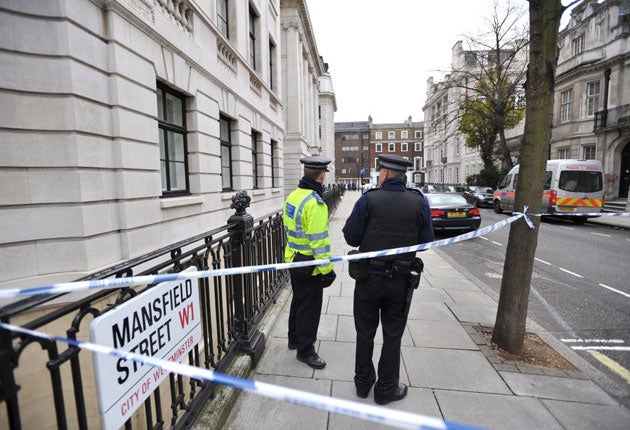Abdulmutallab: 'Good-looking, bright and heading for the top. What a waste'

A serious teenager who skipped the school disco, Umar Farouk Abdulmutallab seemed to classmates at the expensive British School in Togo, west Africa, to be studious, good-looking and from a wealthy family – heading, like many of them, for a top job in a lucrative profession.
He quickly won a reputation at the secondary school in the Togan capital, Lome, for Islamic scholarship and implacable faith – by 17 he was leader of the school's Islamic Religious Society, preaching about Islam to peers, and popularly called "Alfa", a local coinage for Islamic scholar.
With hindsight, there were signs of radical views, according to a former history teacher at the school, Michael Rimmer. "In 2001 we had a number of class discussions about the Taliban," said Mr Rimmer. "All the other Muslim kids in the class thought they were just a bunch of nutters, but Umar spoke in their defence." During a school trip to London the boy became extremely upset when a teacher took children inside a pub. Abdulmutallab insisted that it was wrong to be in a place where alcohol was served. Mr Rimmer added: "He was a good looking guy, bright, from a good family and heading for a good job in a top profession. It seems such a waste."
One schoolfriend said: "He was not a party boy. He would never go to the disco. One time during Ramadan, a group of us were going to the disco to have fun. He gently but firmly told us this would be un-Islamic."
Abdulmutallab's wealthy parents raised him to be an observant Muslim. In Nigeria, he was brought up amid the trappings of luxury as part of a select community for whom rooftop swimming pools and helipads were routine mod cons. Dinner guests included some of the most influential men in the country.
His father, Alhaji Umaru Mutallab, was a banker whose friends were ministers, and who by 1999 had risen to become chairman of the First Bank of Nigeria, a position he only relinquished earlier this month. While leading the institution he helped found Nigeria's first Islamic bank, Jaiz International.
It was during a visit to Dubai that Abdulmutallab made it clear he no longer wanted anything to do with his family. His father warned American officials at the US embassy in Lagos that he was deeply concerned that his son had been "radicalised" while abroad. It is this that British and American security officials are investigating, looking for any clues that might tie him to known radicals. A central focus for these investigations is Abdulmutallab's time in London, where, after he finished school (completing an international baccalaureate with high marks), he studied mechanical engineering at University College London.
His family's wealth meant he was able to live in a £3m, three-bedroom apartment in Mansfield Street, close to Oxford Street. It was during these three years in Britain that his religious convictions are thought to have hardened, making him increasingly intolerant of what he perceived as the West's infringements on the Muslim world.
These increasingly extreme views were hinted at in a conversation with a friend in 2006 who said: "We were talking about 9/11. I was saying under no circumstances could it ever be OK to kill all those innocent people. He was much more equivocal. He called 9/11 an act of war – American troops were on Saudi soil and had humiliated Muslim countries so these actions might be necessary. That's the only time I had an argument with him."
The final transition from religious devotee to extremism is thought to have taken place in the 18 months since June 2008, when he graduated from university. In London the US Embassy gave him a two-year visa granting right of entry to the US.
Having left London, he spent time in Egypt, Ethiopia, Ghana and Yemen – and it is Abdulmutallab's movements in Yemen, where there is high-level terrorist activity, that would shed light on the extent of his involvement in broader radical networks.
